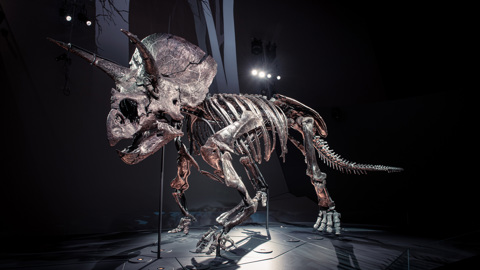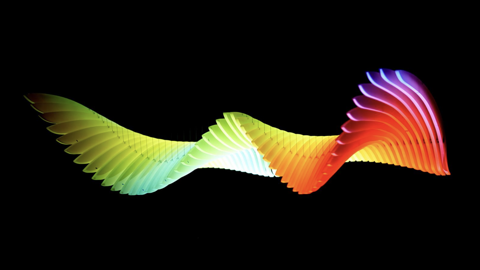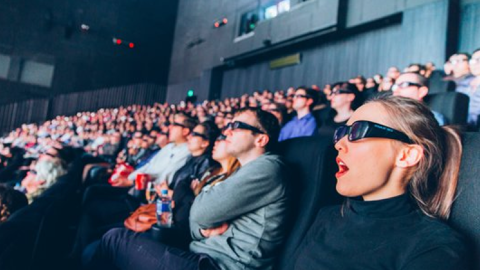Binge-worthy science videos
Watching these videos is the easiest way to gain superpowers since radioactive spiders.

Cicadas and the sound of summer
Join cicada expert and enthusiast, Dr Claire Keely, for a closer look at these fascinating insects.

Is it cute? Lungfish, the fish that can breathe air
It’s the world’s oldest known living vertebrate, but is it cute?

Triceratops: Dino experts review the Jurassic Park series
Two world leading dinosaur experts discuss how realistic the dinosaurs are in Jurassic Park?
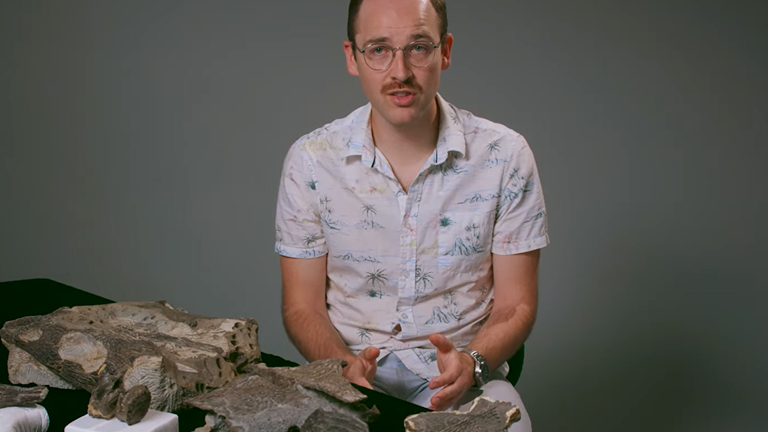
Koolasuchus: Victoria's State Fossil Emblem
What was Koolasuchus? Tim Ziegler tells us all about Victoria's new State Fossil Emblem.

How big is a virus?
We answer the big questions about little viruses.

Unboxing the museum: Deinocheirus claws
The racks and collections in Museum stores contain many objects and memories, this is Tim's personal story of just one.

Triceratops: Love at first sight
Psychologists believe that dinosaur obsessed children develop confidence, persistence and deeper information processing skills.

Can data be beautiful?
Discover how visualisations can display data in stunning ways that make climate change easy to understand.

Triceratops: Drawing on the past
Discover how Paleoartists illustrate long lost animals and landscapes.
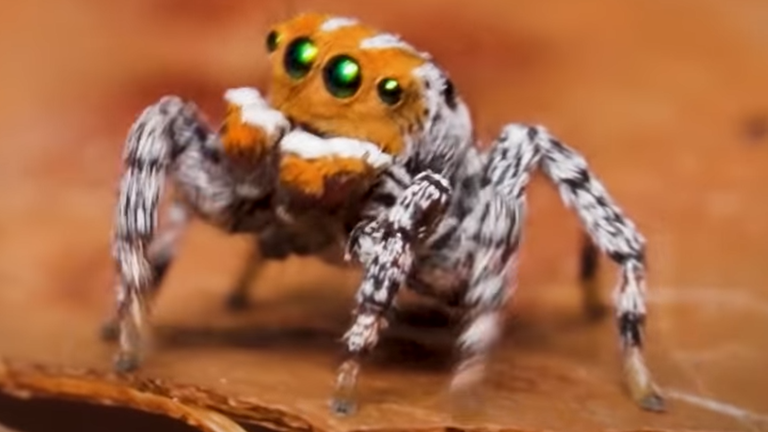
Finding Nemo the peacock spider
It’s only about the size of a grain of rice, but this little guy is sure to make a big splash in the colourful world of Australian peacock spiders.

What is colour?
Have you ever wondered..?

How science works: Liquid nitrogen in action!
Watch as Marie experiments with liquid nitrogen, and see it boil even though it’s cold?

Looking back in time: The Great Melbourne Telescope
The Great Melbourne Telescope signified a transition from a colonial outpost to a progressive city interested in science and astronomy.

Is it cute? Shingleback Lizards
Our Shingleback Lizards, Ned and Tiliqua Sunrise have fallen in love!

How did a tiny flightless bug traverse the Pacific?
Sometimes the smallest things have the largest stories to tell.

What is a Fatberg?
Where are they found? What are they made of? What do Fatbergs say about us? Why would you want to put one in a museum? This video looks to answer those questions.

What's involved in conservation?
From wedding dresses to meteorites, our Conservation team protect and preserve over 17 million objects! Discover how they do it!

Wobbly buildings
Professor Sarah Maddison talks about how airflow around a building can have negative and positive effects.

What is sound?
Watch to find out!

Tiny bees and their big global impact
Dr. Ken Walker, an expert in native bees, explains how these tiny creatures have a major global impact.

Listening out for the elusive Plains-wanderer
How do you search for one of Australia's rarest birds? When it comes to the elusive, ground-dwelling Plains-wanderer, listening is key.

Last of their kind: Caring for the Tasmanian Tiger collection
How do you search for one of Australia's rarest birds? When it comes to the elusive, ground-dwelling Plains-wanderer, listening is key.

Astounding discoveries from the deep sea
How do you search for one of Australia's rarest birds? When it comes to the elusive, ground-dwelling Plains-wanderer, listening is key.
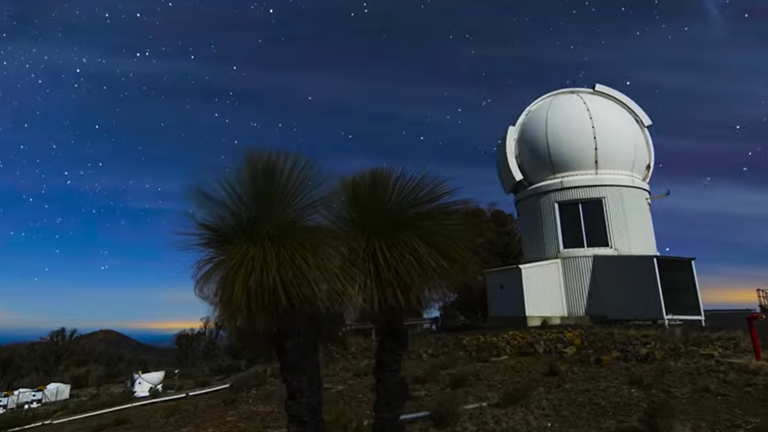
The future's looking up - Dr Tanya Hill
Dr Tanya Hill from the Melbourne Planetarium talks about how she became interested in astronomy and what it’s like to work in a planetarium.

This spacecraft has a mom (Mission Operations Manager)
Mission Operations Manager Alice Bowman shares a dramatic moment in the mission with Museums Victoria.

Is black a colour?
While we can make paints and dyes that are black, it is a little different to other colours. Learn about one of the darkest human-made materials and how animals use black to their advantage in nature.

Can you read this secret message?
Can you hide a secret message using colour? In this video we illuminate the answer with some fun activities you can do at home.

Why does your shadow change during the day?
Have you ever wondered why shadows can be different shapes or change size during the day?

Can a pin hole camera explain how you see?
If there is no light, we have no sight, why is that?
